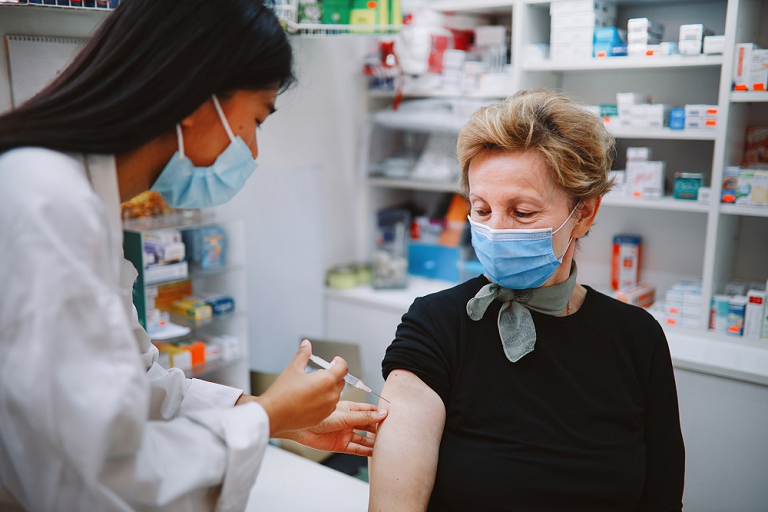When Are You Fully Vaccinated Against COVID-19
The Centers for Disease Control and Prevention (CDC) recently released new guidance for fully vaccinated people, noting that they can gather indoors in small groups without masks or physical distancing with other fully vaccinated people and with unvaccinated people who are at a low risk of severe COVID-19.
While the new guidelines are exciting, it’s important to remember that COVID-19 is still spreading, so some precautions still need to be taken, says Richard Watkins, M.D., an infectious disease physician and professor of internal medicine at the Northeast Ohio Medical University.
One of those precautions is making sure you’re fully vaccinated before visiting with family or friends indoors without a face mask. Not sure what it means to be “fully” vaccinated? Read on to learn everything you need to know.
When are you considered “fully” vaccinated against COVID-19?
It depends on which vaccine you get. The CDC currently says that you’re considered fully vaccinated when you meet the following criteria:
- It’s been at least two weeks since you had the second shot in a two-shot series (i.e. with the Pfizer-BioNTech or Moderna vaccines).
- It’s been at least two weeks since you received the Johnson & Johnson vaccine.
But, if you want to be really safe after getting the Johnson & Johnson vaccine, you’ll wait four weeks to consider yourself fully vaccinated, says Thomas Russo, M.D., professor and chief of infectious disease at the University at Buffalo in New York.
The reason: During clinical trials of the Johnson & Johnson vaccine, an immune response was detected in 76-83% of people aged 18 to 55 and in 60-67% of people over 65 after 15 days; by day 29, though, 90% of participants had antibodies in their blood, regardless of age.
In other words, you reach peak immunity 29 days after the vaccine, which is why Dr. Russo says: “I tell patients [who received the Johnson & Johnson vaccine] that they should wait at least four weeks [to see people without a mask] at this point.”
How long does it take for antibodies to develop after the COVID-19 vaccine?
Once you receive the vaccine, your body starts developing antibodies to SARS-CoV-2 (the novel coronavirus) pretty quickly, Dr. Watkins says. But those antibodies build over time. “It’s a linear process,” he says. “It starts shortly after the vaccine enters the body, and then takes off.”
The Johnson & Johnson vaccine, for example, found that 90% of clinical trial participants had neutralizing antibodies against SARS-CoV-2 on day 29 after being vaccinated while 100% of study participants had neutralizing antibodies by day 57.
In the two-dose vaccines—Pfizer-BioNTech and Moderna—you essentially get a booster vaccine after the first dose, which “significantly increases the amount of antibodies,” Dr. Russo explains. “The second shot is absolutely critical.”
Why is full vaccination important before you start doing “normal” things again?
Currently, the CDC says you can do the following when you’re fully vaccinated:
- Visit with other fully vaccinated people indoors without wearing masks or physical distancing.
- Visit with unvaccinated people from a single household who are at low risk for severe COVID-19 disease indoors without wearing masks or physical distancing.
- Avoid quarantine and testing following a known exposure if you don’t have COVID-19 symptoms.
But the “fully vaccinated” part is crucial here. “You want the optimal immune response that will afford the maximum amount of protection,” Dr. Russo says.
It can be hard to have patience, but experts say that waiting at least two weeks after your last COVID-19 vaccine shot to see loved ones without a mask again will make a big difference in keeping you—and them—protected.






























